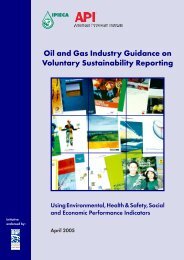Why human rights matter - Rio Tinto
Why human rights matter - Rio Tinto
Why human rights matter - Rio Tinto
Create successful ePaper yourself
Turn your PDF publications into a flip-book with our unique Google optimized e-Paper software.
<strong>Why</strong> <strong>human</strong><br />
<strong>rights</strong> <strong>matter</strong><br />
How to guide<br />
January 2013<br />
Box 20: Definitions of complaints, disputes and grievances<br />
A community complaint is a notification provided by a community member, group or institution to the business<br />
that they have suffered some form of offence, detriment, impairment or loss as a result of business activity and/or<br />
employee or contractor behaviour.<br />
A community dispute is a complaint that has not been accepted as valid by one party or the other and has<br />
escalated into disagreement between the parties.<br />
A community grievance is a complaint or dispute that has escalated to the point where it requires third party<br />
intervention or adjudication to resolve. Typically grievances involve more than one community member or family<br />
and relate to disputes that have remained unresolved for some time.<br />
Box 21: Principles of an effective complaints and grievance process<br />
Based on the UN Guiding Principles, the six overarching principles for non-judicial grievance processes<br />
articulated in <strong>Rio</strong> <strong>Tinto</strong>’s Complaints, disputes and grievance guidance are:<br />
Legitimate – The process should be transparent and sufficiently independent to ensure no party can interfere<br />
with fair conduct.<br />
Accessible – The process should be publicised in such a way that all community members can understand<br />
and have access to it, including groups who may face barriers to access.<br />
Predictable – The process should be consistent, have a time frame for each stage and be clear on the types<br />
of process and remedy that are available.<br />
Equitable – Aggrieved parties must have reasonable access to sources of information, advice and expertise<br />
to engage in the process on fair and equitable terms.<br />
Transparent – Process and outcomes should be sufficiently transparent to meet public interest concerns without<br />
jeopardising the identity of individuals. Parties to a complaint, dispute or grievance should be regularly informed<br />
about its progress to resolution.<br />
Rights-compatible – Process and remedies must accord with internationally recognised <strong>human</strong> <strong>rights</strong>.<br />
A source of continuous learning – Drawing on relevant measures to identify lessons for improving the<br />
mechanism and preventing future grievances and harms.<br />
Project-level complaints, disputes and grievance processes should also be based on engagement and dialogue,<br />
consulting with stakeholder groups on its design and performance.<br />
(Adapted from <strong>Rio</strong> <strong>Tinto</strong>’s Complaints, disputes and grievance guidance and UN Guiding Principles)<br />
77


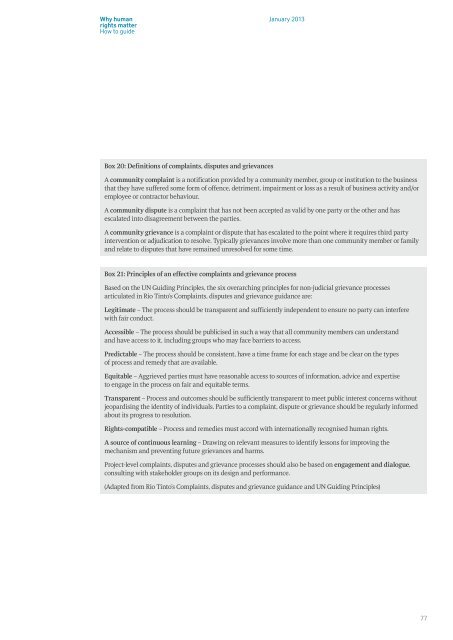
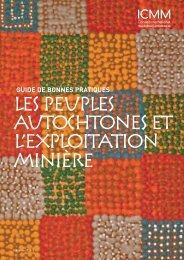
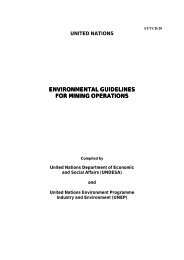
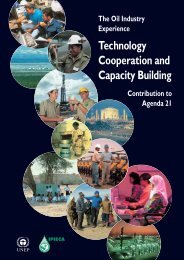
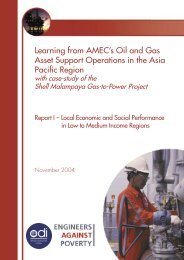
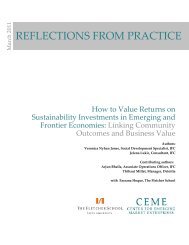
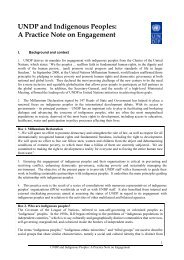
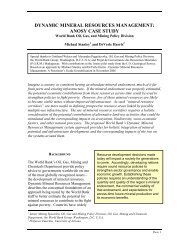

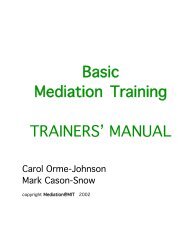
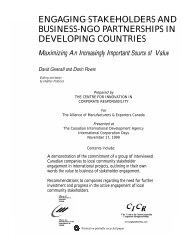
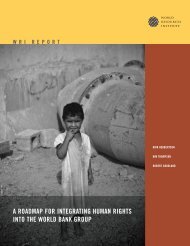
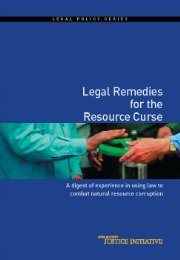
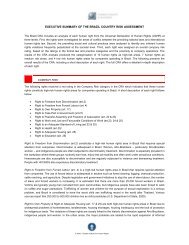
![[PDF] Community Development Toolkit - CommDev](https://img.yumpu.com/48616495/1/184x260/pdf-community-development-toolkit-commdev.jpg?quality=85)
